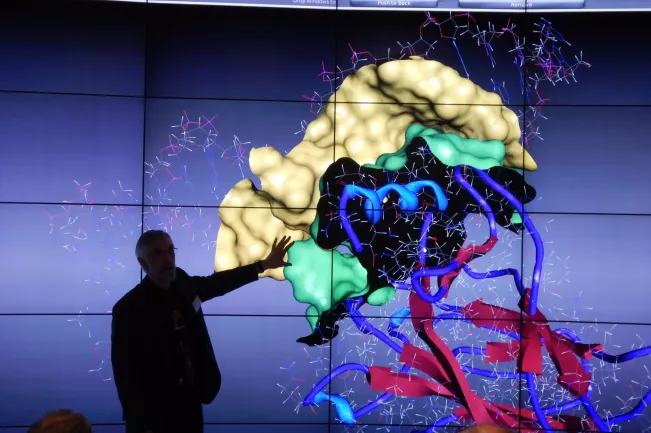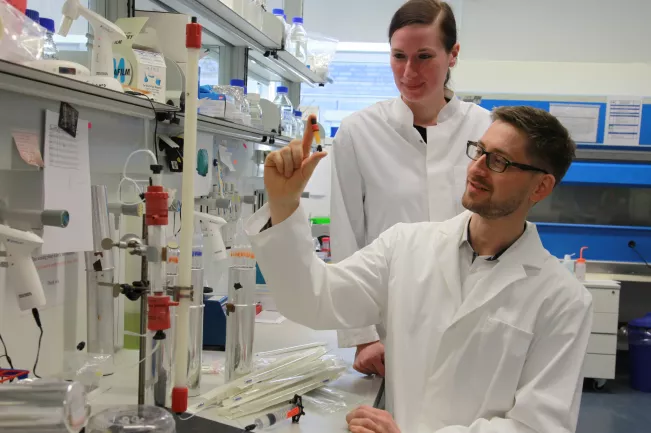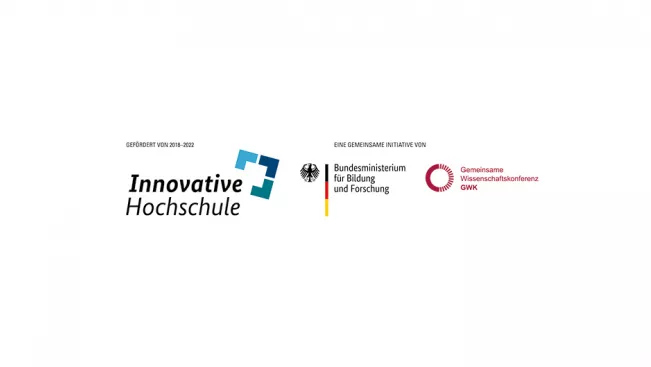Centre for Science and Technology Transfer (ZWT)
Innovative University @H-BRS

The Innovative University sponsorship initiative at a national and state level considers the third mission of universities alongside teaching and research, “transfer and innovation”. The federal government and states are providing a total of 550 million euros for applications from universities within the Innovative University scheme.

With its winning “Campus to world” concept, H-BRS wants to build on its existing transfer toolkit and adapt to the changing requirements of the economy, society and academia. They are also aiming for a massive expansion of their networking with the regional and national surroundings. The central element of the concept is the “Innovation Mall”: This represents a physical and virtual location for networking and exchange which enables transfer into and out of the university.

“Among other things, we will be setting up a citizens’ workshop in line with Citizen Science competitions,” explains Prof. Margit Geißler, Vice President for Research and Young Academics at H-BRS. The establishment of a centre for transfer and research management is the key strategic project component. There are plans for structural project contribution in the fields of security (biometrics and forensics) and digitalisation (visualisation showroom).
Further structural measures affect the project component of local innovation partnerships, which address extending the range of positive location-dependent transfer effects, while the forum tackles issues of responsibility, ethics and responsible action on a participatory basis. CitizenLab is the project component which focuses on knowledge transfer into civil society.
The starting point for the Innovative University is on 1 January 2018, with the Centre for Science and Technology Transfer at H-BRS taking over project management. The plan is initially to implement seven parallel project components and two implementation projects with a longer planning and preparation time. An Innovative University project panel will accompany the whole project.
Further structural measures relate to the sub-projects Municipal Innovation Partnerships, which addresses the extension of the range of positive transfer effects close to the location, and the Responsibility Forum, which takes up questions of ethics and responsible action in a participatory manner. In citizen science, there are various sub-projects focusing on the transfer of knowledge between the university and society.
The Transfer Network is located in the Center for Science and Technology Transfer ist das Transfernetzwerk. This is where the Innovation Mall is developed - a central element for networking researchers and business.
Campus to World" was launched on January 1, 2018.
Overview of Campus to World subprojects:
1.) Transfer network
As a central contact point, the interfaces of the university with partners from business and society are bundled here. In addition to the implementation of the "Innovation Mall", optimized transfer processes are to be implemented and demand-oriented access routes to the university are to be ensured. Innovation managers, who are assigned to the research focus areas of digitization and sustainability/energy, act as contact points internally and as sales offices externally. In addition, network managers will be established who will oversee the continuation and follow-up of strategic discussions with company managements as well as the downstream event formats.
2) Science ethics
Public figures will join scientists from the university to reflect on the special social responsibility of science in public formats on topics such as civil security, digitization and sustainability.
3) Transfer in security research
The establishment of a BiometricsLab focusing on the defense against cybercrime, identity theft and video forensics, as well as the development of a virtual showroom for security research, address current security policy issues. The goal is to establish the university as a partner to national security agencies in the validation of technologies.
4.) Business Cooperation Visualization
With the showroom at the university, the region's medium-sized businesses and the Institute for Visual Computing are given an opportunity to experience new visual computing solutions and identify potential applications. Using the latest digital technologies, medium-sized companies will be enabled to successfully adapt to the requirements of Industry 4.0.
5) Municipal innovation partnerships
Rural regions are suffering from a loss of attractiveness for both citizens and companies. Together with the pilot municipality of Neunkirchen-Seelscheid, strategies are being developed to extend the positive effects of the university into rural areas. In Neunkirchen-Seelscheid, a project office serves as a direct point of contact. In the long term, the procedures can also be transferred to other municipalities.
6) Citizen science
Participatory science and open innovation are the focus here. To this end, the university creates an infrastructure through which citizens work together with researchers and students on scientific-technological and social issues. This happens not only on campus, but also in the region and in social media. The university is supported by its project partners Wissenschaftsladen Bonn and Forschungszentrum Jülich.

Contact

Anja Schlochtermeier
Research Funding, Department: Economics (FB 01), Social policy and social security (FB06), Institutes: IZNE, IVI, CENTIM, ZEV, Parent topics: ERDF
Location
Sankt Augustin
Room
F 409
Address
Grantham-Allee 20
53757, Sankt Augustin
Telephone
+49 2241 865 478
Remi Maier-Rigaud
Professor for Social Policy, Vice President for Research and Young Academics
Location
Sankt Augustin
Room
E 234
Address
Grantham-Allee 20
53757 St. Augustin
Telephone
+ 49 2241 865 602
Michaela Wirtz
Vice president transfer, innovation and sustainability, Professor for Chemistry, espec. Instrumental Analysis and Physical Chemistry
Location
Sankt Augustin
Room
E 232
Address
Granthamallee 20
53757 Sankt Augustin
Location
Rheinbach
Room
E 110
Address
Von-Liebig-Str. 20
53359 Rheinbach